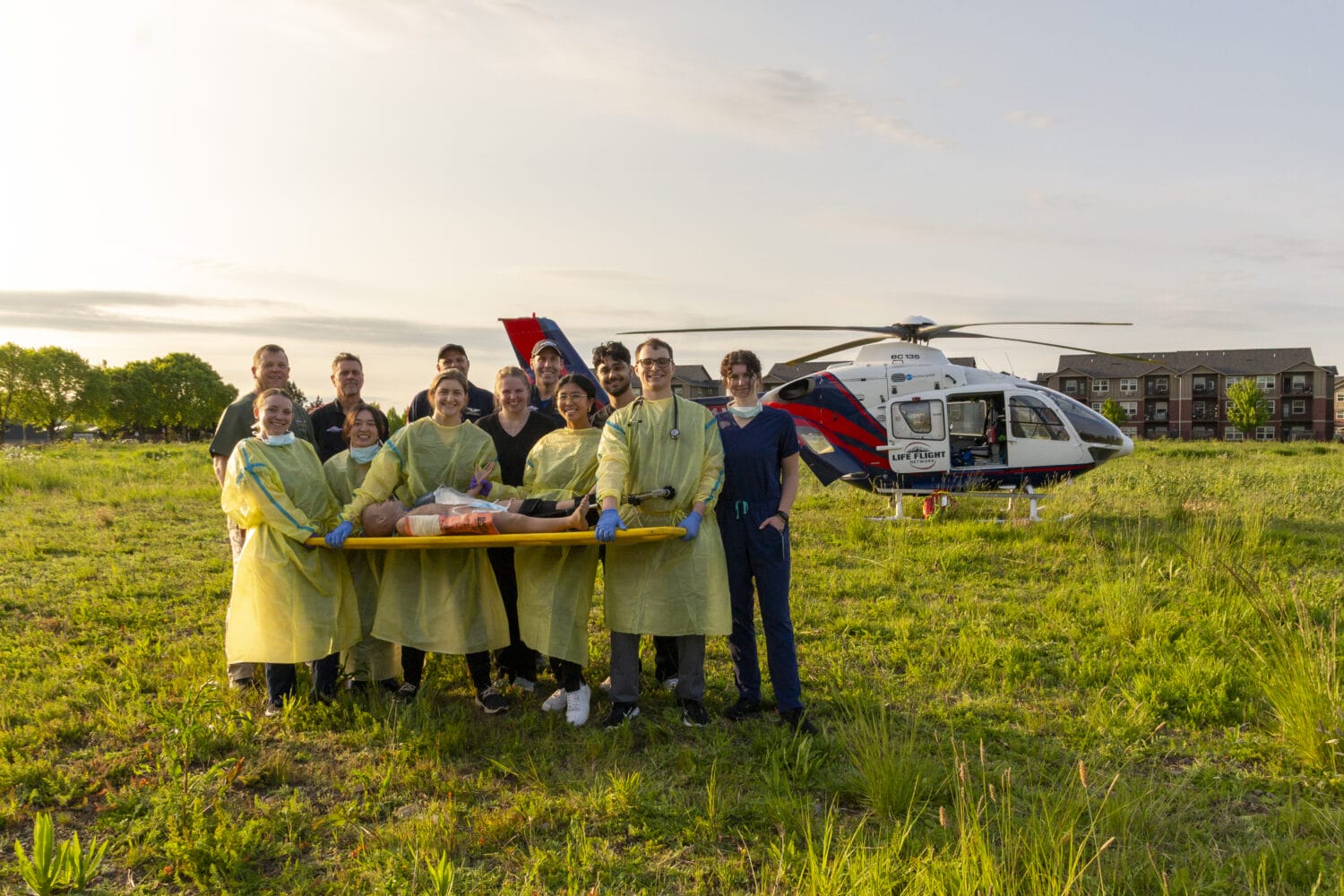Advancements Planned for WesternU College of Graduate Nursing
Western University of Health Sciences (WesternU) is enlarging its College
of Graduate Nursing with the addition of two new programs and expansion to
a second site.
Beginning in August, the on-site portion of WesternU’s Internet-based
Master of Science in Nursing/ Family Nurse Practitioner (MSN/FNP) degree
program will be offered through the Pomona campus as well as the regional
focus center in Chico, and will be broadened into three tracks. The joint
MSN/FNP degree will still be offered, but the two programs also will be
offered individually, with an MSN degree for current nurse practitioners
and an FNP certificate for nurses already prepared with a master’s degree.
The University’s web-based MSN/FNP degree program began at the WesternU
Regional Center at Chico in 1997, and was placed under the umbrella of the
College of Graduate Nursing in 1998. It was the first program of its kind
in the nation.
“”It should be very appealing to a lot of people; it definitely enables us
to have a broader market,”” said Karen Hanford, MSN/FNP/PA-C, program
director and acting dean for WesternU’s College of Graduate Nursing.
As part of a curriculum development project, Mary Anne Schultz, PhD, RN, a
consultant to the University, has created a market survey for nursing
professionals in hospitals and clinics. It asks respondents to evaluate
the educational needs of nurses currently and in the future, and will be
used to ensure that course work in the College of Graduate Nursing aligns
with the needs of patients and nursing employers.
“”The feedback we get will be invaluable,”” Dr. Schultz said. “”I’m expecting
that the surveys will tell us that nurses are interested in improving
their management skills, both in information technology and in budgeting.””
Based on this projection, WesternU is examining the development of a
master’s degree in Nursing Economics/ Administration for the fall of 2000.
The program is still in the early stages of consideration, and will
proceed based in part upon the survey results.
Another change the graduate nursing program anticipates is the addition of
some traditional, on-campus courses. The current Internet-based program
provides access to higher education to nurses who couldn’t previously
schedule traditional coursework around their jobs, families or long
commutes, but a need also has been identified for campus-based classes.
“”Adding some site-based programs to the Pomona campus would give nurses in
the Inland Empire an added resource,”” Hanford said. “”There is a lot of
expertise on campus, and it also would be a conduit for continuing
education as we move into offering lifelong learning for our alumni.””
Hanford said Dr. Schultz was brought on board to offer expertise and a new
perspective to the program’s advancements.
“”Dr. Schultz has a background in business and healthcare economics that
fits well with our need for strategic planning and marketing,”” said
Hanford.
Dr. Schultz is a graduate of the UCLA School of Nursing and has worked
with nursing programs at the University of California at Irvine,
California State University at San Bernadino, University Hospitals of
Cleveland and University of Cincinnati Hospitals. She is on advisory
boards for the Journal of Nursing Administration, the American Nurses
AssociationCalifornia and the Gamma Tau chapter of Sigma Theta Tau
International.
“”The opportunity to work on this project with WesternU is exciting. It’s
futuristic and it holds the nursing profession to a high standard,”” Dr.
Schultz said.
A clinical coordinator also has been hired to help develop the nursing
program on the Pomona campus, and is expected to begin in June.
WesternU’s College of Graduate Nursing is approved by the Board of
Registered Nursing and is accreditation-eligible from the American
Association of Colleges of Nursing. The program’s charter class of six
students graduated in January, and an additional 18 received diplomas June
4.
The prerequisites for the program are: a bachelor of science degree in
nursing with a grade point average of 3.0; coursework in biochemistry and
statistics; and a computer with Internet capabilities. The MSN/FNP program
is comprised of a six-semester, two-year curriculum, and requires two on-
site weekend visits each 15-week semester. Students are assigned to
preceptors in their hometown, and complete their clinical assignments on a
weekly basis.
Classes for the fall semester in the College of Graduate Nursing begin
August 30. Applications to begin in the fall 2000 term will be accepted
through March 1, 2000. For more information, call (530) 898-7034.



